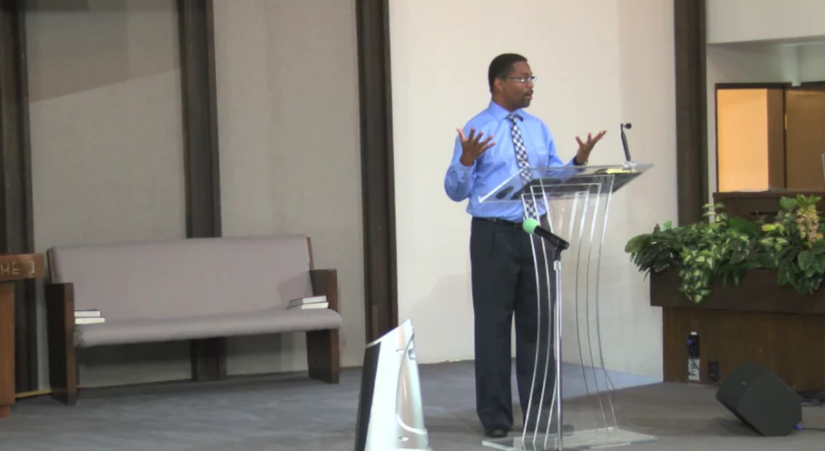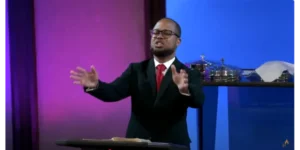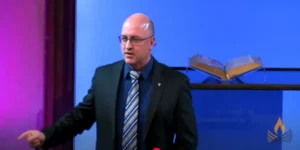Rewind to Luke 15:1-7 and take note that the setting in which Jesus tells this story is one of criticism. At this time in His ministry, Jesus was drawing huge crowds, but not the types of crowds the scribes and Pharisees approved of. “This man receives [welcomes] sinners and eats with them,” they sneered. To be seated at the table with Jesus means these “sinners” were . . . blessed! And the thing that scandalized the Pharisees is the first and most basic truth about the gospel that makes it such good news: Jesus welcomes sinners! He doesn’t curse them, or reject them, or turn up his nose at them, or ignore them. He welcomes them. And that means He welcomes you and me.
Sinners knew where Jesus stood but were nevertheless “drawn” to Him. How is it that Jesus can take a stand and yet be attractive to sinners, while some Christians take a stand and yet are offensive to everybody? The difference is love. Where there is no love, the law kills; but where there is love, the law is a delight. People can tell when you care more about rules than relationships. Jesus put relationships first without putting righteousness aside, and that’s
why people were drawn to Him.
Jesus responds to the criticism by telling three lost and found stories. Rewind to verses 4-7 for the first story of the lost sheep. Though this simple story, Jesus teaches that:
The shepherd locates the lost sheep at great risk to himself. Robbers, predators, and sudden cliff drops are all threats. But the shepherd knows his sheep is subject to these same threats and is compelled to hurry. It must be sought for because it can’t find it’s own way back. This helps us understand a basic principle of Christianity: God finds you, you don’t find God.
You matter to God. You’re not just a number. When you stray and get off track He comes looking for you. This parable proves Jesus would have died for just one. “Here is the divine guarantee that not even one of the straying sheep of God’s fold is overlooked.” (COL, 188)
Jesus actively seeks the lost. What was new in Jesus’ teaching was His insistence that the lost must be sought out and not merely mourned for. Anyone can mourn. Jesus acts! Likewise we must be intentional. We cannot wait for the lost sheep to report to us.
The shepherd searches without counting the cost. Once found, the sheep has to be carried to safety. The Middle Eastern shepherd has always carried a sheep over his two shoulders. The price paid is emphasized by the size of the sheep. Your sins and mine are heavy! “Surely he has borne our grief and carried our sorrows.”
God loves a party. Rejoicing over lost people being found should characterize our Sabbath worship experiences. There should be a party in here every week. It should be standard operating procedure. And if our Sabbath gatherings are not characterized by rejoicing, we need to know why not!
Repentance is allowing yourself to be rescued. The sheep did nothing to help effect its rescue, but is nevertheless a symbol of repentance. How so? Jesus here defines repentance as acceptance of being found.
The Jews taught that before God’s love is extended to the sinner, he must first repent. That’s why the Pharisees were scandalized that Jesus had fellowship with those who hadn’t repented. But in reality, they had repented. They allowed themselves to be rescued, while the Pharisees did not.
They were the ones who had not repented. That’s why Jesus said the tax collectors and prostitutes were entering the kingdom of God ahead of them (Mt. 21:31). The lost sheep is a reminder to His audience that all have gone astray. The whole world is represented as the “lost sheep”– the one lost speck in God’s vast universe. Yet Jesus came to rescue that one lost world.
It is not only the unclean, the outsiders, the backslidden Jew, the Gentile, the tax collectors and sinners who are symbolized by the lost sheep. It’s the Pharisee, the orthodox, the law-keeper, and the ones who keep themselves aloof and separate from the “worldly, who are included with
the lost sheep. But the good news is that He seeks every stray—including you & me. Aren’t you glad that the Lord is your shepherd? –Pastor Randy





